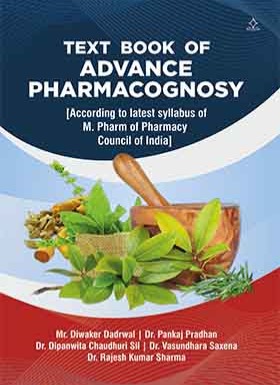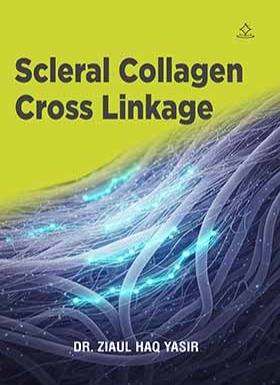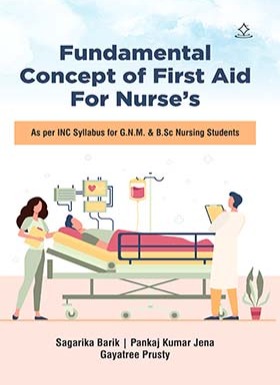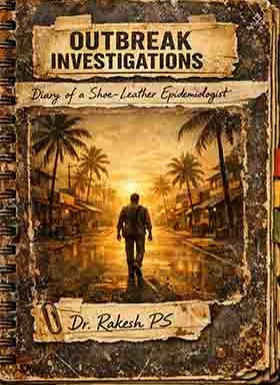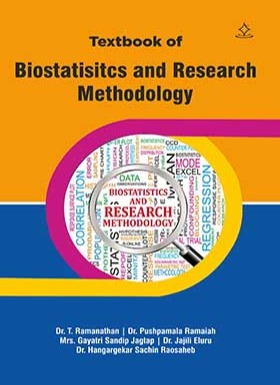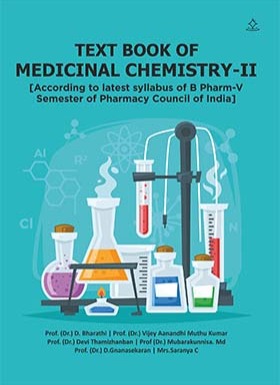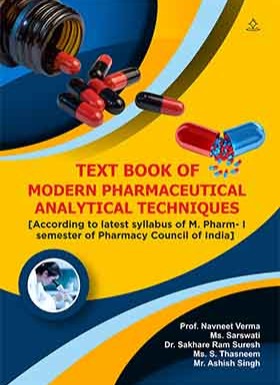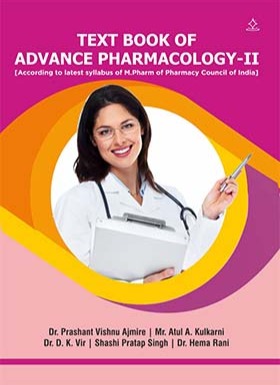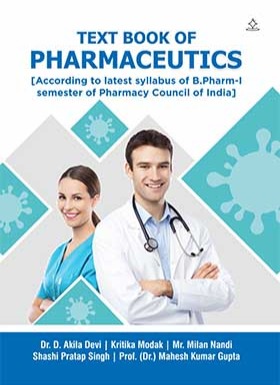About Book
The Text Book of Advance Pharmacognosy is a comprehensive academic resource that delves into modern developments and specialized topics in the field of pharmacognosy, with a particular emphasis on medicinal plants, marine natural products, nutraceuticals, phytopharmaceuticals, and pharmacovigilance. It begins with Plant Drug Cultivation, highlighting the pivotal role of pharmacognosy in the herbal drug industry, and covers the contributions of the Indian Council of Agricultural Research (ICAR), along with Current Good Agricultural, Cultivation, and Collection Practices essential for ensuring quality and sustainability. The section also discusses conservation strategies for medicinal plants, both ex-situ and in-situ, to preserve biodiversity. The second chapter explores Marine Natural Products, detailing general methods for isolation and purification, the study of marine toxins, and recent advances in marine drug research. It also addresses challenges such as taxonomical identification and chemical screening, along with their practical solutions. The third chapter on Nutraceuticals examines current trends, future prospects, and the therapeutic significance of various classes, including inorganic mineral and vitamin supplements, digestive enzymes, dietary fibers, cereals, grains, natural health drinks, antioxidants, polyunsaturated fatty acids, and herbs as functional foods. It also provides guidelines for formulation, standardization, and regulatory compliance under FSSAI norms. A dedicated section elaborates on Nutraceutical Sources, listing marker compounds, their chemical nature, medicinal uses, and health benefits for key examples like spirulina, soybean, ginseng, garlic, broccoli, green and herbal tea, flax seeds, black cohosh, and turmeric. The book then transitions into Phytopharmaceuticals, describing occurrence, isolation techniques, chemical characteristics, pharmacological applications, and health benefits of bioactive compounds such as carotenoids, limonoids, saponins, flavonoids, phenolic acids, vitamins, tocotrienols, tocopherols, andrographolide, glycolipids, gugulipids, withanolides, vascine, and taxol. The final chapter emphasizes Pharmacovigilance of Natural Drugs, discussing WHO and AYUSH guidelines for safety monitoring, spontaneous reporting schemes for adverse reactions, and critical insights into biodrug–drug and biodrug–food interactions with relevant examples. Overall, the book blends traditional pharmacognosy principles with cutting-edge research, regulatory frameworks, and applied aspects, making it a vital reference for students, researchers, and professionals in the pharmaceutical sciences.
About Author
Mr. Diwaker Dadrwal, an accomplished academic and researcher, serves as Associate Professor and Head of the Pharmacognosy and Biotechnology Department at Sanjivani College of Pharmaceutical Sciences, Khetri (Rajota). With qualifications including D. Pharm, B. Pharm, M. Pharm (Pharmacognosy), and M. Tech (Biotechnology), he brings a multidisciplinary approach to pharmaceutical education. With 18 years of extensive experience, he is a respected figure in teaching and research. A life member of APTI and All India Biotech Association, Mr. Dadrwal actively contributes to the advancement of the field. His dedication to pharmacognosy and biotechnology underscores his commitment to academic excellence.
Dr. Pankaj Pradhan is presently working as Professor, Swami Keshvanand Institute of Pharmacy, Jaipur (Rajasthan). He completed his graduation from Punjab Technical University, Jalndhar with distinction, post-graduation from Jaipur National University, Jaipur with Gold medal. He has 16 years of teaching and research experience. He has guided over 55 graduate students and 06 postgraduate students. His areas of research is about standardization of Herbal drugs, Phytochemistry, Herbal regulation and comprise role of oxidative stress in behavioral, systemic and inflammatory responses of animals, cellular and molecular basis of oxidative stress & endocrine pharmacology. He published 35 research and review papers in various National and International journals, and presented 32 papers in national and international conferences. He has delivered 10 invited talks and organized 04 national seminars.
Dr. Dipanwita Chaudhuri Sil is an Assistant Professor and Head of the Department of Botany at Holy Cross College, Agartala. She holds a Ph.D. in Botany with a specialization in Aerobiology. Her teaching focuses on Plant Taxonomy and Aerobiology. In 2019, Dr. Sil completed a 15-day Refresher Course on 'Science and Technology for Social Development' at the Faculty Development Center of Tripura University, earning an A grade. She also led a year-long research project titled "To survey pollen grains and fungal spores in the atmosphere of Agartala and adjoining areas," funded by the Department of Biotechnology, New Delhi. Dr. Sil has actively participated in various workshops and webinars. Notably, she served as the Organizing Secretary for a workshop on 'Methods of Orchid Cultivation, Botanical Garden Establishment and Herbarium Preparation' held on January 6-7, 2022, at Holy Cross College, Agartala. Additionally, she coordinated an online 'Training and Project Awareness Session' on 'How to Read Scientific Literature' on July 14, 2021, in collaboration with Project MANAV—The Human Atlas Initiative by NCCS, IISER-Pune, and Persistent Systems, funded by the Department of Biotechnology, Government of India. Her research contributions include a publication titled "Pollen fertility, Viability and in vitro germination studies in Mucuna bracteata DC EX Kurz from Tripura," featured in the book "Biological sciences Impacts on Modern civilization, Current and Future Challenges" (ISBN: 978-81-947417-9-4) by New Delhi Publishers in 2020. Dr. Sil is a lifetime member of the East Himalayan Society for Spermatophyte Taxonomy and the Aerobiological Society of India. Her dedication to teaching, research, and active participation in academic events significantly contributes to the advancement of botanical sciences at Holy Cross College and beyond.
Dr. Vasundhara Saxena is having more than 15 years of teaching and research experience. She is currently working as Associate Professor in Sharda University, Agra. She has completed her masters in Pharmacognosy from BBD, NITM GBTU, Lucknow in 2011 with GATE Fellowship, and her doctorate studies from AKTU, Lucknow in 2018. She is having a brilliant focus on academic excellence for the betterment of students. She has been authored more than 15 books and book chapters with various national and international publications. She has been actively participated in pharmaceutical and interdisciplinary research for last 12 years. She has published 5 patents as well. She has produced more than 30 review and research articles in various national and international (Scopus/SCI) journals. Her interest of work is in the field of Herbal drug and formulation standardization, Herbal Drug Technology, Phytochemistry and Natural Products.
.
Dr. Rajesh Kumar Sharma M.Pharm (Pharmacognosy), Ph.D., M.B.A. (Executive), is currently working as an Associate Professor in Teerthanker Mahaveer College of Pharmacy, Teerthanker Mahaveer University, Moradabad. He obtained his B. Pharm degree from M.I.E.T. Meerut., M. Pharm degree from T.I.P.E.R. Meerut and Ph.D. degree from Teerthanker Mahaveer University, Moradabad. He has total 17 years of experience and more than 12 years of teaching and research experience. He is guiding 7 Ph. D scholars. He has published 30 papers in various reputed peer reviewed in national and international journals.
